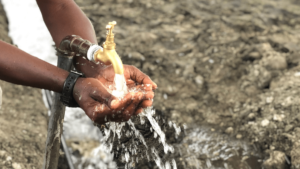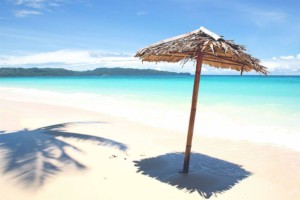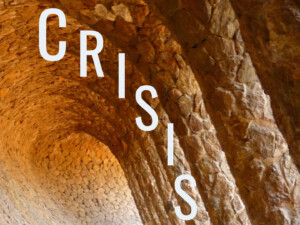One tourism beach at a time: Local action can help turn the tide on marine plastic
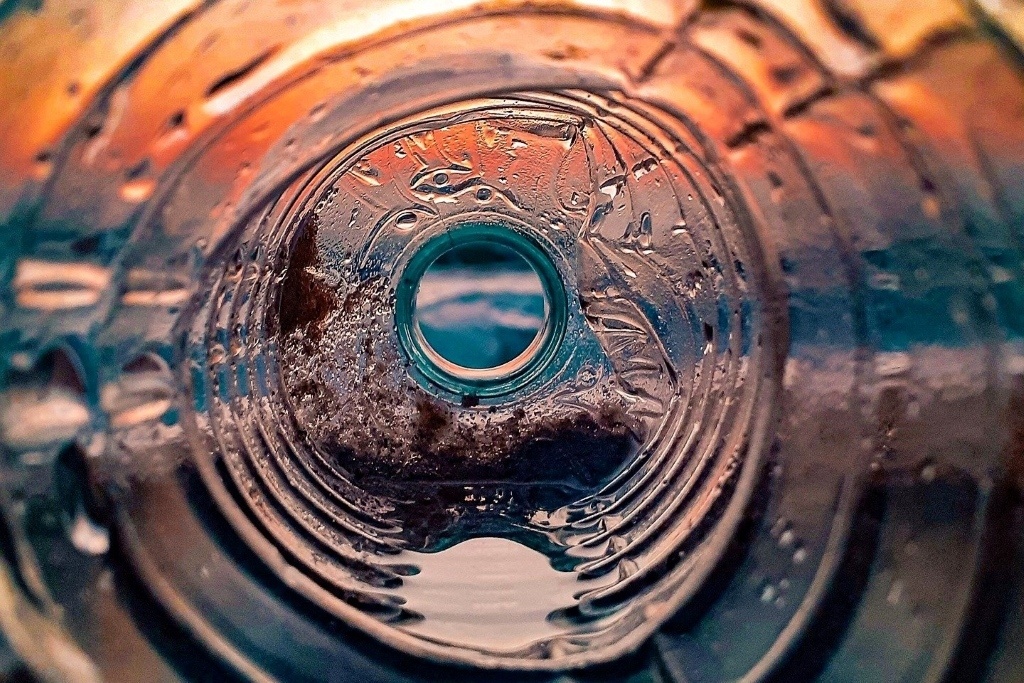
Even the smallest steps taken by travel & tourism stakeholders to counter the global threat of ocean plastic pollution are important, according to PhD candidate Krisztina Eleftheriou-Hocsak. In this “Good Tourism” Insight, she discusses the local actions taken by a nonprofit organisation in Cyprus.
[Thanks to Tazim Jamal for inviting Ms Eleftheriou-Hocsak to write a “GT” Insight.]
All tourism, including mass tourism, has been dominated by coastal and maritime tourism (CMT). According to a study prepared for the European Commission, CMT covers beach- and non-beach-related tourism on land (coastal tourism) as well as principally water-based tourism (maritime tourism).
Unfortunately, plastic has become ubiquitous in the marine environment. Traces of plastic have been found in 36 – 100% of aquatic animals studied. Items that looked like “a plastic bag and candy wrappers” have been spotted in the depths of the Mariana Trench, which is Earth’s deepest point. And microplastics have been found to enter the atmosphere via sea spray.
A serious issue for coastal and maritime tourism is its contribution to the marine plastic problem. A large amount of waste is left behind by tourists. This leads to a large plastic footprint as up to 95% of marine litter is plastic. In the Mediterranean, for example, debris can increase by 40% during summer, the peak tourism season. In some areas, high season visitors generate more than 75% of annual waste.
The paradox is that marine plastic pollution negatively affects the ecological and aesthetic environments and recreational possibilities that attract visitors to these destinations. The negative effects, along with the adverse publicity and loss of sustainable beach certifications, may result in significant loss of revenue, jobs, and social stability.
Also see Tejas Joseph’s “GT” Insight
“Piling up: India tourism’s growing waste management problem”
Marine pollution has significant negative consequences on the economic and social well-being of coastal communities, including those dependent on tourism. For example, in South Korea, marine debris led to a 63% decrease in visitors and an estimated revenue loss of USD 29 – 37 million during the summer of 2011. In the southern subtropical coast of Brazil, 85% of tourists avoid beaches that they perceive as over-littered.
While international organisations have been talking about marine plastic debris for decades, their talk has failed to stem the tide. According to estimates, ocean-going plastic pollution continues to grow strongly. And the COVID-19 pandemic seems to have made the situation even worse.
Stemming the tide, turning the tide …
To stem and eventually turn the tide on marine plastic pollution, we must prevent plastic from entering the oceans while retrieving as much plastic as possible from them. Fortunately, there are a number of efforts at different levels that have been initiated to tackle one or both sides of the problem. Effective initiatives at the global and national levels can be joined. Successful local projects can be emulated.
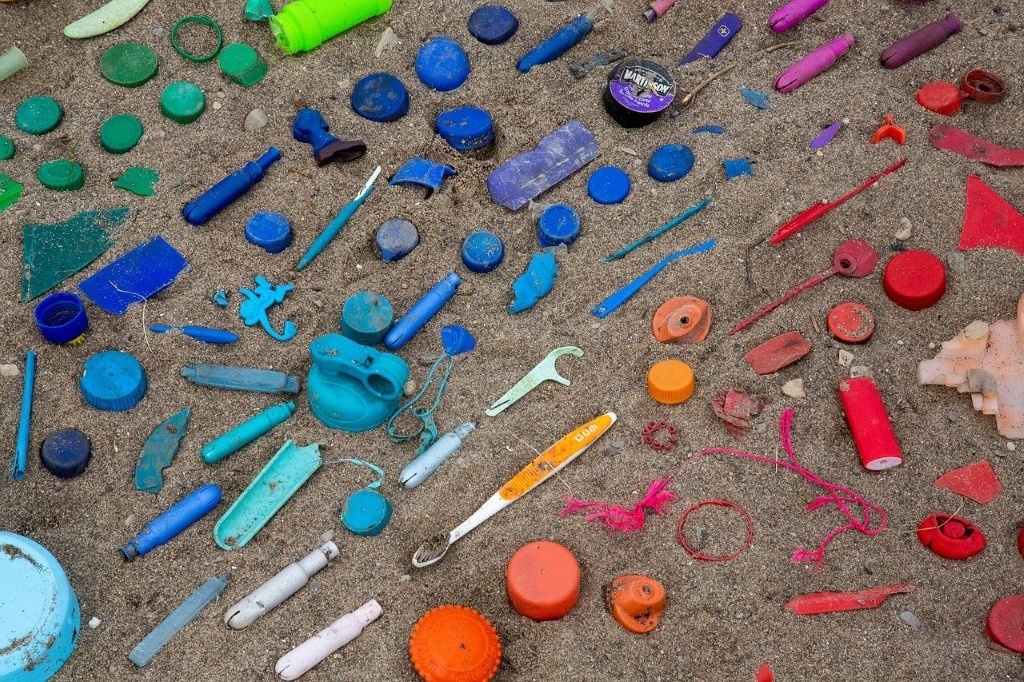
Internationally, there are hopes that initiatives such as SDG 14, the Ocean Panel, and the Ocean Decade will lead to results. In the European Union, the compulsory transposition into national law of the EU directive 2019/904 could be a breakthrough as it introduces bans and regulations on a number of single-use plastic items.
Political leaders are not the lonely soldiers in the fight against plastic pollution. The travel & tourism industry also plays a significant role. Public and private bodies such as the Global Tourism Plastics Initiative and Travel Without Plastic offer guidelines and tools.
Also see John Morris Williams’ “GT” Insight
“How to make a hotel green & responsible: Get on with it!”
In various sectors, multinationals and independents are taking action. In the accommodation sector, for example, Accor is committed to banishing all single-use plastic items in all of its hotels by the end of 2022, while the Black Sheep Inn in Ecuador follows a “Zero Waste — Reduce, Reuse & Recycle” policy right now.
The actions of non-governmental and nonprofit organisations are important too.
… in Cyprus
Established in 2006, the Cyprus Sustainable Tourism Initiative (CSTI), where I was project manager for 14 months until April 2021, is actively addressing the challenge of marine plastic pollution. Marine plastic pollution is of particular importance to the island nation of Cyprus because the Mediterranean Sea has one of the world’s highest concentrations.
A representative past project of CSTI is the “Thomas Cook Ring Fenced Project” that took place during the high season of 2011. Undertaken in cooperation with the Travel Foundation, the project aimed to reduce the use of plastic in hotels without negatively impacting the customer experience.
Also see Lauren Kharouni’s “GT” Insight
“Save money, satisfy guests, & join the fight against food waste”
Project co-ordinators regularly visited hotels to train and support hotel staff and Thomas Cook Quality Managers.
Hotel guests were involved. Upon arrival they received a letter explaining the project and requesting their support. At the end of their stay, they completed a survey.
The key actions of the project included:
- Replacing single-use plastic cups with reusable cups around the pool;
- Replacing bottled water with drinking water dispensers (to refill the reusable cups);
- Providing only one dustbin with a plastic bin liner in each guest room;
- Training hotel employees on the correct size and thickness of plastic liners;
- Changing plastic liners only when soiled;
- Eliminating some plastic wrapping;
- Replacing individually-packaged soaps, shampoos, and conditioners with refillable dispensers in bathrooms; and
- Providing straws only upon request.
The main outcomes of the project were:
- 19% fewer plastic items used per guest on average;
- A saving of roughly 800,000 plastic water bottles;
- 50% of guests reported a more positive feeling towards Thomas Cook; and
- 93% of guests wished to see similar projects in other destinations.
More recent initiatives of CSTI have also been aimed at removing marine plastic from circulation. One example is a clean-up project as part of “Plastic Free Entertainment Cruises & Water Sports Activities”. Sponsored by BeMed (Beyond Plastic Med), the clean-up was carried out by 60 volunteers in November 2020 in the town of Larnaka. The four-hour activity yielded 1,470 kg of plastic waste recovered from the sea and several bags of rubbish picked up from the beach.

One piece at a time, one beach at a time: Local action beats global talk
Marine plastic debris is a threat both locally and globally. While mitigation efforts have been and are being undertaken by national and international stakeholders, local initiatives seem to be better placed to produce local results. As CSTI proves, independent organisations, such as local NGOs and nonprofits, can and should step up to do what they can close to home.
Also see Angelo Sciacca’s “GT” Insight
“Save to sustain: Frugal innovation in circular tourism”
Projects of larger entities can have a global impact too. The International Coastal Cleanup, for example, has collected more than 45 million tiny pieces of plastic from coasts worldwide. And there is an ongoing international campaign that has already saved 100 million plastic bottles. However, almost certainly, nothing beats local efforts by local travel & tourism stakeholders to keep local coastlines beautiful for the appreciation of visitors.
Marine plastic pollution must be stopped. If bottom-up approaches are more efficient than top-down ones, then, undoubtedly, this is the way to go.
Agree? Disagree? What do you think? Share a short anecdote or comment below. Or write a “GT” Insight of your own. The “Good Tourism” Blog welcomes diversity of opinion about travel & tourism because travel & tourism is everyone’s business.
Featured image (top of post): One piece at a time, one beach at a time: Tourism can help stem the tide and then turn the tide on ocean plastic pollution. Image by Karuvadgraphy (CC0) via Pixabay.
About the author

Krisztina Eleftheriou-Hocsak is a PhD candidate at the European University of Cyprus. Her research focuses on sustainable coastal and marine tourism. Before starting her PhD, Ms Eleftheriou-Hocsak worked on merger and acquisition cases in the environment and energy sectors at the European Commission in Brussels.
Krisztina would like to acknowledge and thank Dr Tazim Jamal at Texas A&M University, Dr Nikolaos Boukas at the European University of Cyprus, and CSTI Chair Philippos Drousiotis for their help and support in the preparation of this “GT” Insight.



